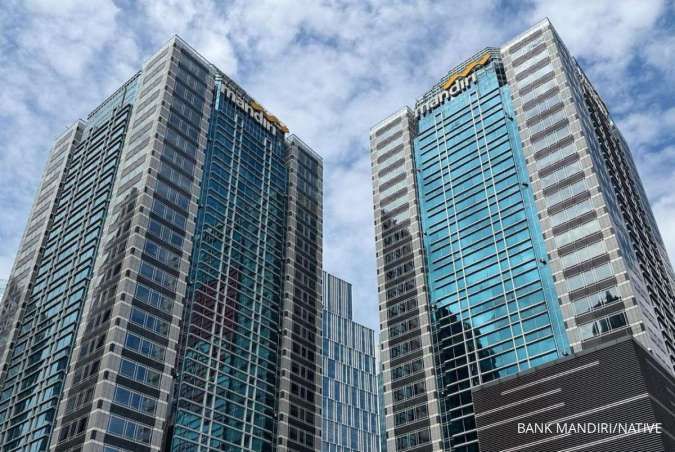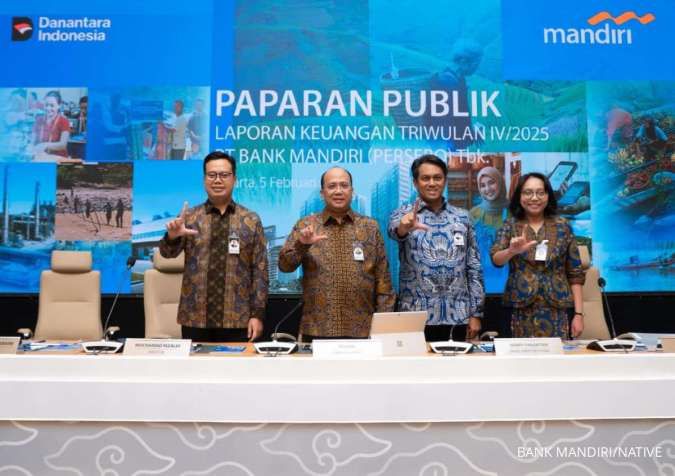JAKARTA. State lenders Bank Mandiri and Bank Rakyat Indonesia (BRI) are partnering with the Taxation Directorate General office to facilitate tax payments by small and medium enterprises (SMEs) through their ATM networks. Bank Mandiri is looking to carry out minor adjustments only to its system because it has been connected to that of the tax office when both agreed to cooperate in the payment of land and building tax back in 2006, according to Mandiri president director Budi Gunadi Sadikin. “We just have to add a separate menu on the ATM and do other small changes,” he said on Monday. Mandiri technology and operations director Kresno Sediarsi said the bank invested around US$10,000 to $20,000 only in the system changes for the SME tax facilitation. “At the moment, non-SME taxpayers are required to obtain an identification code from the tax office to pay their tax via the ATMs. If the same requirement is waived for SME taxpayers, it will be much easier for us to implement the changes.” Mandiri currently has more than 11,000 ATMs and expects to start facilitating the payment in September at the earliest. Mandiri had a total of 618,698 accounts in its micro, small and medium credit segments as of June 2013, up 24 percent from a year before. BRI finance director Achmad Baiquni said teams from his office and the tax office had met to discuss the payment system. BRI, known for its wide coverage in rural areas, now operates more than 14,000 ATMs. “We are looking to start the payment process soon since it will only take us around six weeks to modify the existing system,” Achmad said. The government is eyeing SMEs as another source of its tax revenues to meet its tax revenue target. In 2013, the tax office eyes Rp 995.21 trillion in tax revenues, almost one-fifth higher from last year. Tax revenues had reached Rp 465.77 trillion, equal to 48.8 percent of the target, as of July. A regulation on SME tax was signed by President Susilo Bambang Yudhoyono in June and subjects SMEs to pay 1 percent of their total annual business turnover in taxation. The regulation, which came into effect on July 1, defines SMEs as those with annual turnover of a maximum of Rp 4.8 billion ($466,381). According to Cooperatives and Small and Medium Enterprises Ministry data, there were a total of 55.2 million SMEs as of June 2013, representing nearly the entire business units in Indonesia. The SMEs employed up to 101.72 million workers, or 97.3 percent of the country’s labor force. Tax Director General Fuad Rahmany said his office would not carry out formal checks to the SMEs, adding that they were more encouraged to do “self-assessments”. “But I hope they will pay the tax because it is compulsory,” he said at the Finance Ministry. (Tasia Sipahutar)
Mandiri, BRI facilitate SME taxpaying
JAKARTA. State lenders Bank Mandiri and Bank Rakyat Indonesia (BRI) are partnering with the Taxation Directorate General office to facilitate tax payments by small and medium enterprises (SMEs) through their ATM networks. Bank Mandiri is looking to carry out minor adjustments only to its system because it has been connected to that of the tax office when both agreed to cooperate in the payment of land and building tax back in 2006, according to Mandiri president director Budi Gunadi Sadikin. “We just have to add a separate menu on the ATM and do other small changes,” he said on Monday. Mandiri technology and operations director Kresno Sediarsi said the bank invested around US$10,000 to $20,000 only in the system changes for the SME tax facilitation. “At the moment, non-SME taxpayers are required to obtain an identification code from the tax office to pay their tax via the ATMs. If the same requirement is waived for SME taxpayers, it will be much easier for us to implement the changes.” Mandiri currently has more than 11,000 ATMs and expects to start facilitating the payment in September at the earliest. Mandiri had a total of 618,698 accounts in its micro, small and medium credit segments as of June 2013, up 24 percent from a year before. BRI finance director Achmad Baiquni said teams from his office and the tax office had met to discuss the payment system. BRI, known for its wide coverage in rural areas, now operates more than 14,000 ATMs. “We are looking to start the payment process soon since it will only take us around six weeks to modify the existing system,” Achmad said. The government is eyeing SMEs as another source of its tax revenues to meet its tax revenue target. In 2013, the tax office eyes Rp 995.21 trillion in tax revenues, almost one-fifth higher from last year. Tax revenues had reached Rp 465.77 trillion, equal to 48.8 percent of the target, as of July. A regulation on SME tax was signed by President Susilo Bambang Yudhoyono in June and subjects SMEs to pay 1 percent of their total annual business turnover in taxation. The regulation, which came into effect on July 1, defines SMEs as those with annual turnover of a maximum of Rp 4.8 billion ($466,381). According to Cooperatives and Small and Medium Enterprises Ministry data, there were a total of 55.2 million SMEs as of June 2013, representing nearly the entire business units in Indonesia. The SMEs employed up to 101.72 million workers, or 97.3 percent of the country’s labor force. Tax Director General Fuad Rahmany said his office would not carry out formal checks to the SMEs, adding that they were more encouraged to do “self-assessments”. “But I hope they will pay the tax because it is compulsory,” he said at the Finance Ministry. (Tasia Sipahutar)

